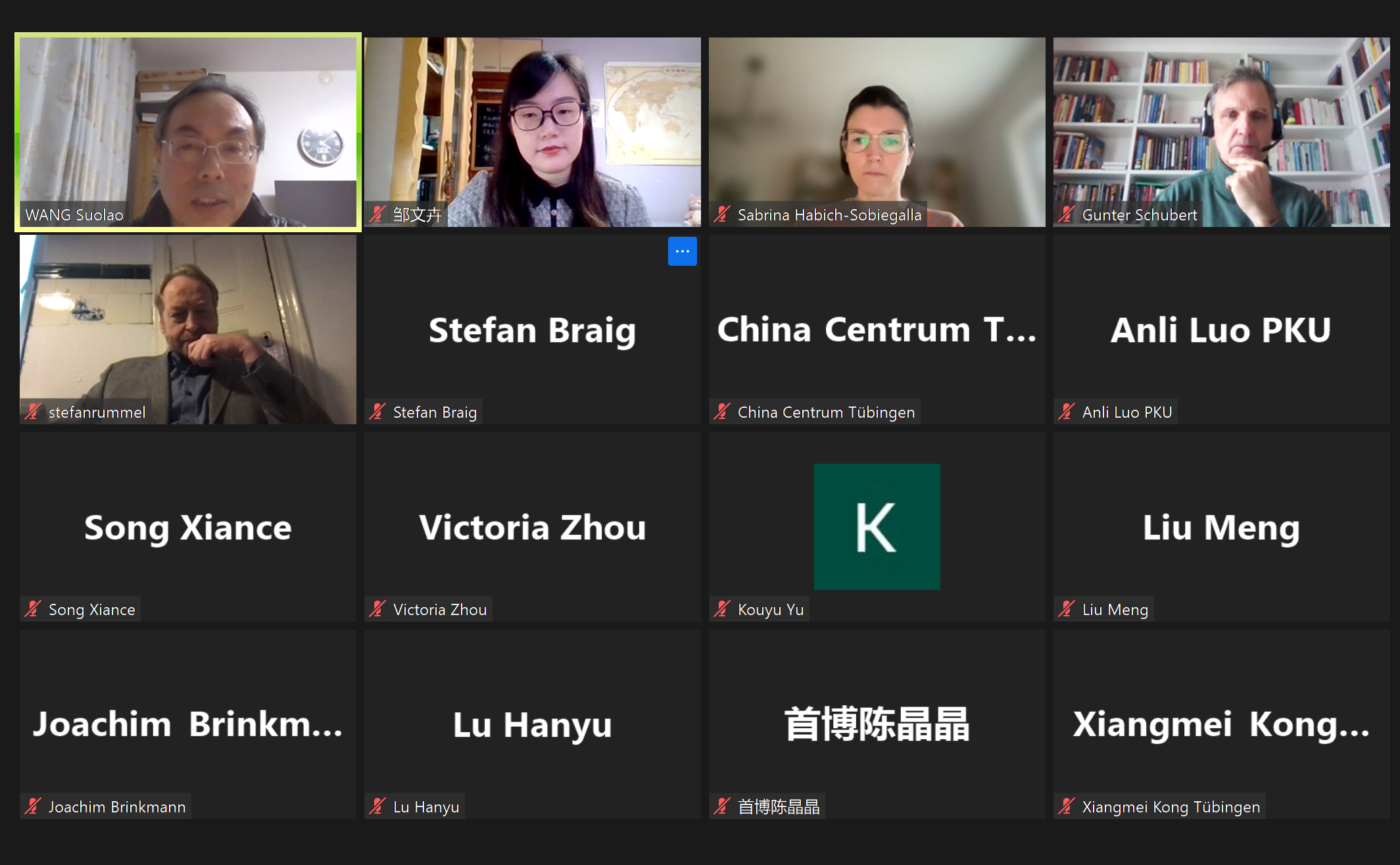
The last session of the Triple Alliance Young Scholars Workshop co-launched by Peking University (PKU), the University of Tübingen (UT) and Freie Universität Berlin (FUB) for the promotion of area studies was successfully held on December 9, 2022.
A PhD student from the Institute of Area Studies, PKU, Zou Wenhui made a presentation introducing her research about “Urban Regimes in Centralized System: A Study on Urban Politics in Contemporary Russia.”
She first introduced the general picture of the academic field of urban politics by answering the following three questions: “Why to study urban politics?”, “Why to study cities in Russia?” and “What knowledge can be gained from urban politics?”
In order to figure out the political structure in the urban area and its functioning mechanism in contemporary Russia, Zou thoroughly reviewed the existing literature concerning urban politics both from the West and from Russia, and pointed out that Western theoretical tools, such as urban regime, coalitions of interests, and governance theory, are not directly applicable to the political situation in Russia, so it is necessary to build a more explanatory theoretical framework based on the Russian political and social reality. Thus, she plans to place her study against the background of “Power Vertical” launched and continuously strengthened through 30 years of political transformation. By examining the cases of urban regimes in several major cities in Russia, her study intends to reveal the changing pattern of urban political developments, including their general trends as well as some of their peculiarities.
Zou then introduced three different stages designed to answer three different sets of questions. Unlike the first stage of research which is trying to conduct descriptive study depicting the whole picture of Russian cities, Stage 2 includes three in-depth historic analyses of the selected cities, with an analytical framework that help to examine the practical capability and the action strategy of one city from the following aspects. This framework can further distinguish four ideal types of urban regime by identifying whether it is autonomous or dependent in terms of practical capability, and whether it tends to confront with upper level of government or be integrated into the system in terms of action strategy. Stage 3 plans to fully mobilize cities selected as the object of case study in Stage 2, and examine how different urban regimes react and function in similar policy environment by placing them under the same circumstances. Zou intends to use a national-wide project like the “Rubbish Reform” project to create an issue arena, where cities have to deal with the unified political task given by the federal center and react within their own capacity, according to various tendency in action strategy.
When it comes to the research methods and materials, Zou plans to address different sets of questions by selecting research methods appropriate to the nature of each stage of the study, ranging from government-issued legal texts, news reports, magazines, official interviews, important statements by leaders, to new forms like outcomes statements and financial reports. Besides, with the training of sociology and oral history interview, she plans to conduct on-line interviews with a number of professors, scholars, and political commentators who have experienced urban political change, so as to complement her analysis. Zou answered questions and suggestions given by the audience members after her presentation.


